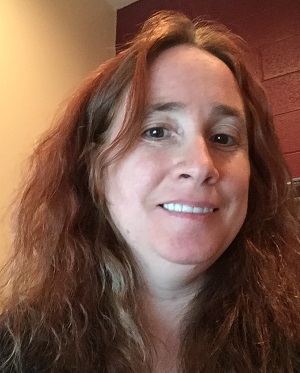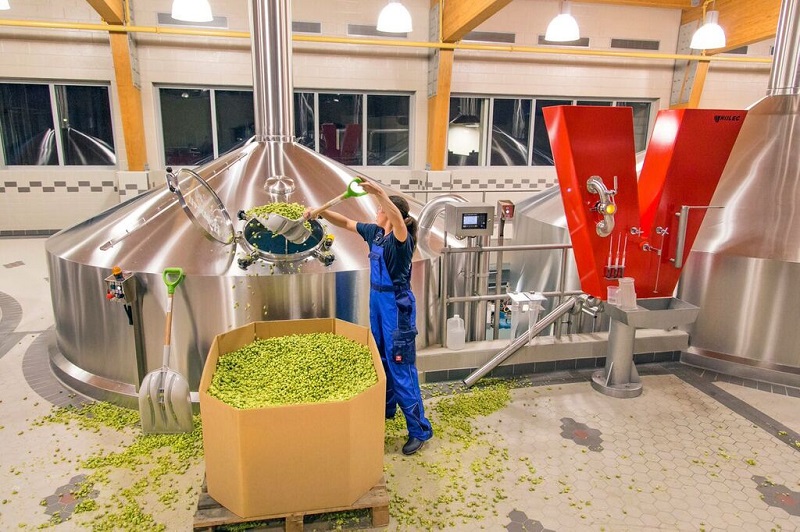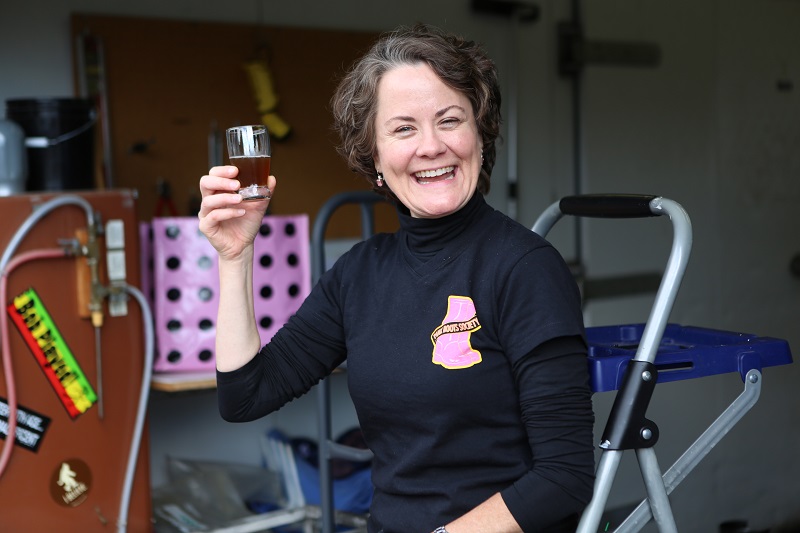The Reality of Being a Woman in the Beer Industry
Taking a Deeper Dive into the Tricky Questions of Women, Sex and Beer
Women drink beer. This likely isn’t a revelation because there’s a good chance that you know a woman, or several, who drinks beer, or maybe you are a beer-drinking woman yourself. Women also brew, package, sell and market beer. This probably also isn’t news to anyone who has been on a brewery tour, attended a beer festival or heard of beer industry big names like Kim Jordan, co-founder of New Belgium Brewing, or Meg Gill, co-founder and president of Golden Road Brewing.
This relationship between women and beer is simultaneously straightforward—the beverage itself doesn’t have a gender and there is nothing remarkable about a woman drinking a beer—and yet also situated at a cross section of culture, history, business and gender politics.
It is this dichotomy that can make it difficult to talk about women and beer. A woman’s relationship to beer itself can be wholly uncomplicated, but it is impossible to ignore the larger questions swirling around women, gender and beer: Are women drinkers marketed to differently than male drinkers? Are beer labels and pump clips displaying near-naked women and risqué double-entendres sexist? Should breweries be doing more to reach out to consumers outside their standard demographic?
The story of women and beer, after all, is an old one, beginning as early as 1800 B.C., when brewing beer was among a woman’s daily chores in ancient Sumerian and Egyptian societies.
Yet in the several thousand years since then, the story around women and beer has proved to be complicated, and sometimes rocky. Long a traditional women’s trade, as the work transitioned from the home to a regulated and commercialized industry, brewing became a profession seized by men.
The recent story surrounding women and beer has oscillated on one end from questions of sexism on beer labels and pump clips to the highlighting of women brewers and drinkers in the press as if they are a rare specimen. The reality is that being a woman in beer involves navigating a grayer territory as women carve out their own space in the market and in the industry.
Modern Brewers

Amy Gentry, brewer and co-owner of Hunter’s Brewing in Chesterton, Indiana.
“It’s been traditionally a man’s world, and it’s been perceived as a man’s drink, and it’s really not. It is a product and a culture that crosses genders,” says Amy Gentry, brewer and co-owner of Hunter’s Brewing in Chesterton, Indiana.
Gentry became consumed with the hobby of homebrewing and opened Hunter’s with her husband and fellow homebrewer, Justin Reisetter, after an 18-year career in financial risk management. Being a woman in an industry that sometimes feels dominated by “20-year-old bearded young men” can be a challenge, says Gentry.
“I’m a woman in my early 40s who has left a successful career in very much the white-collar world. I stand out. I’m not the norm. That can be a challenge because people see that and are like, ‘Oh, she’s just the business end.’ And it’s like no, I do the same thing that all of you do, I just come at it from my own perspective,” says Gentry. “I know for sure, too, that I’m not necessarily perceived as being one of the cool kids.”
Yet being a woman owner-brewer has its advantages, too. Gentry is the majority owner of the brewery, so it qualifies as a female-owned business. That element adds a heightened level of interest and awareness from consumers, says Gentry.
“Our taproom has big windows that show into the brewery, so it’s not uncommon for people to look through the window and there I am brewing or dealing with fermenters or climbing in the pots to clean them or doing whatever needs to be done back there.”
The physicality that comes with a brewing position—maneuvering 44-pound hop bags, 55-pound grain bags, working pallet jacks and tri-clover fittings—is not to be underestimated, but it’s also not a challenge unique to women.
“It’s a physically demanding job for everyone,” says Irena Bierzynski, in a phone call two hours after she got off an overnight shift at Victory Brewing, from 10 p.m. to 6 a.m. “It’s also a little bit of a challenge of being a smaller stature, but mostly I’ve found that if you work in a brewery where they have safety in line, you won’t be asked to do anything that you can’t manage. … I’ve found that even when I’m training men my age, it’s more that anyone new to the brewery struggles with these things, and you just have to learn certain ways to lift, certain ways to hold things, and once you figure that out, anyone can do it.”

Irena Bierzynski of Victory Brewing. (Photo courtesy Victory Brewing)
Since she was 18, Bierzynski knew she wanted to work in the brewing industry, and shortly after graduating with a degree in chemistry, she was hired as a production brewer at Lompoc Brewing in Portland, Oregon. After two-and-a-half years at Lompoc, Bierzynski was ready to scale up to a bigger production brewery and landed at Victory in Downingtown, Pennsylvania. As a production brewer, her main duties include clarifying and filtering beer, dry-hopping and the janitorial work that come with every brewery job of keeping the tanks and brewery clean.
Bierzynski was 22 when she started at Lompoc and is 26 now. She says that aside from a few instances early in her career, she’s found the industry to be positive and receptive toward women.
“I definitely have had the impression that a person I’m talking to thinks I don’t really pull my weight around the brewery and I’ve just been hired as kind of a gimmick, like ‘Oh, we have a girl.’ And I’ll say something where I’ll actually speak to the quality of the beer or say what I contributed to it and that person will be surprised and will noticeably be, like, ‘Oh, she actually did contribute to this.’”
That hasn’t happened in a few years, says Bierzynski, and she thinks age was likely also a factor. And while she’s the only female brewer out of a brewing staff of about 30 at Victory and is aware of the attention that can garner, she’s getting more comfortable with the title.
“As I get more experienced and more confident, it doesn’t matter to me as much whether I’m called a brewer or a female brewer or a brewster or whatever you want,” she says.
Assumptions and Questions
Statistics and anecdotal evidence indicate that women do appear to be entering the long male-dominated market and industry with greater frequency. Women ages 21-34 drink craft beer more frequently than the national average and represent 15 percent of the total consumption, according to a report by the Brewers Association. The Pink Boots Society, an organization founded by Teri Fahrendorf in 2007 to empower women beer professionals through networking and scholarships, now has 25 chapters across the U.S. and more than 1,900 members.

Teri Fahrendorf, founder of The Pink Boots Society. (Photo by Alana Fickes)
And yet from bars to homebrew shops to online forums, women frequently face assumptions of taste—when a bartender questions a woman’s double IPA order, for instance—and knowledge of beer and brewing.
“The most common thing that happens to me as a woman in the beer-consuming world is that someone will make an off-the-cuff assumption that I’m not drinking beer,” says Carla Lauter. “I’ve gone into a beer bar before and been handed a wine menu.”
Lauter, a writer in Maine, also explains the phenomenon of test questions to discern a woman’s knowledge of beer.
“If I’m at a festival and I’m asking a brewer or assistant brewer about their beer, they kind of look at me and try to judge how much I know about beer,” she says. “They’ll throw out something really complicated to see if I catch the depth of it or give me a test question to see if I really know anything about beer. … It’s like what’s the secret password to the clubhouse.”
Women brewers and beer professionals standing on the other side of the festival table face a similar dismissal.
“I hear from women all the time that people focus on the guy with the big beard instead of woman standing next to him,” says Lee Lord, a production brewer at Smuttynose Brewing Co. in Hampton, New Hampshire. “A lot of times, even while working retail, people will stumble up, and say [to her], you don’t even look like you like beer.”
The frustration can also trickle down to homebrewing, still a largely male-dominated hobby. The average homebrewer is a 40-year-old married affluent white man, according to a 2013 survey commissioned by the American Homebrewers Association.
After Stacy Konkiel, an Albuquerque-based research metrics consultant, created and researched her first recipe from scratch, a peat-smoked porter inspired by “Parks and Recreation’s” Ron Swanson, she visited a local homebrew shop, in Indiana where she lived at the time, to stock up on ingredients.
“I was explaining what I needed in terms of the recipe, and a fellow customer started telling me how it would work, the proportions and all of these things that I had meticulously researched, that I knew front to back because I had put a lot of thought into creating that particular recipe,” says Konkiel.
In a separate incident, after a local beer writer posted a provocative image on a New Mexico craft beer group email list, Konkiel responded and cited why it made her feel uncomfortable as a woman in the community. After the writer brushed off her response, Konkiel says she used the experience as motivation to start the process of opening a local chapter of Girls Pint Out, a national beer organization for women that holds educational and social events.
“You’re less likely to be relegated to that stereotypical role if you’re with a group of other women and you have that baseline understanding of what it’s like to be a woman in craft beer,” says Konkiel.
The Future Story
Most women in beer likely have a story or two about times they have been dismissed or talked down to, but most can also talk at length about what they love about the industry and culture.
“I think it’s great to see people coming together, and beer provides an opportunity to do that. It’s also really dynamic, but focused on quality and excellence,” says Bierzynski, of Victory. “Everyone wants to do something new, but they also want to do something great.”
Women, after all, also come to beer for the same reasons that men do—for the beer itself, but also for the community and the passion.
“You know how your entire life you look for the club of people you can spend time with and feel accepted by? That’s craft beer for me. And I look at the people who are my really good friends in craft beer, and it’s like middle-aged guys,” says Emily Sauter, the social media, marketing and communications manager for Two Roads Brewing Co. in Stratford, Connecticut.
Despite the gray area women may have to navigate, the most remarkable aspect of being a woman in beer today is how unremarkable it is to see a woman in the brew house or drinking a beer alone at the bar—how after more than 3,500 years of brewing history, women can choose beer as a profession and a passion, and have the power to write their own story.

As a Homebrew Supply Shop owner I have found overall acceptance from customers and suppliers. Once my customers realized I knew what I was talking about they had zero issues. I rarely have had any issue in a bar and when I did have an issue I chalked it up to ignorance on their part. I love being a part of the beer world and would not change it for anything!
Can the name of the article be changed to “The Reality of Being THESE Women in the Beer Industry”? Generalizing an entire gender’s experience in a large industry is a form of sexism. Thank you from a female brewer.
I was introduced to craft beers over 15 years ago (good thing I live in San Diego). I know what types I like, and love beer festvals. My favorite story is the time I was sitting in a brew pub and these groups came in doing a scavenger hunt and came up to me and stated “we never thought we would find a female with red hair, drinking a beer”. Fortunately I am seeing more and more women drinking beer and creating them.
I think it’s gotten so much better in the last couple years. I live in FL where craft beer has really just started blossoming. I would have whole heartedly agreed with this article three years ago, but now? Men bend over backwards to talk to me about brewing and beer. The men I know are supportive of women in the beer industry and desperately want more women in it. Yes I do get the initial surprise when ppl learn I’m an avid home brewer, but not necessarily bc I’m female. Ppl just think it’s cool in general and admire my passion. Another thing too is that the guys I know get very annoyed when they are stereotyped as chauvinistic A-holes who think men are the only ones who should be drinking and brewing beer. Maybe I just hang out with cool male beer drinkers. 🙂 The upside to all this is that there are advantages to bring a minority in an industry. Easier to stand out and make your mark. We need to take advantage of this and press forward. :). Cheers!
I Love! Love! Love! this industry that I’ve been lucky enough to be a part of for over 10 years and I’m incredibly thankful for the men that I have met, my friends who encouraged me to be a part of it and welcomed me into the coolest club around!❤️?
In addition to that, because I’ve been in the industry for 10+ years, it has been an incredible and refreshing experience to watch it grow. I love that 4 years ago Charles Finkle realized that he employed more women in his brewery than any one else in the state. He chose to celebrate that fact, creating our “Women In Beer” event, held the first Monday of Seattle Beer Week. All proceeds benefit Planned Parenthood. This a communities that I am very proud to be a part of. Cheers all!?
LAVERNE & SHIRLEY
I love beer!!! I don’t work in the industry, but am quite active in the craft beer scene in my city and luckily it is very rare for anyone to talk down at me or ignore me as a woman. I do get comments from bar patrons sometimes, but never from bartenders/brewers/etc.
And as for sexy beer labels and the like- I don’t find them sexist per se, but I do find them super awkward and embarrassing. I’m sure they’ll phase out in time (hopefully).
There is another female in the biz you should check out. Her name is Devon Kreps and her brewery is 7venth Sun in Dunedin Fla.
Great article. I’m heartened to see that this overwhelmingly masculine world is finally starting to change. The women who are leading the charge deserve our thanks–
To say that in ancient times beer brewing was a woman’s chore is very belittling. For thousands of years only women were allowed to brew beer and have taverns to distribute beer! The invention of beer was credited to a Goddess 7000 years ago and Norway, Finland and many other countries credited a woman for the invention. Just sayin’!
I happened upon this article while doing research about a situation that developed at the brewery I work at. I don’t brew but I have an extensive knowledge of the process. I would love to see an article about being a female behind the bar in a brewery. This is my 4th brewery, as a bartender in every single one of them, and the owners just don’t understand the complex and nearly impossible delicate juggling act that is being taken seriously behind the bar as a female, more so in the brewery world than the cocktail world.
As a manager behind the bar for a craft brewery tasting room, I have to agree. It’s not that the men I work with don’t agree with me, but when I’m generally angry about microaggressions both from customers and well-meaning coworkers, they don’t get it.
I’m fortunate that my workplace has a zero-tolerance harassment policy for both staff and customers. At the same time, the attitude seems to be “we’ll hire qualified females to brew any time, as soon as one shows up at the door,” rather than realizing they need to actively recruit women and POC in order to reach parity.
I want to be in the brewing industry so badly. I’ve finally found what I’m almost 100% I want to do with my life. And I feel like I have so many restrictions on my success. To start off, I’m 16. I have a year and 4 months until I can even start brewing. And then 3 more until I can taste my own brews. Of course when I’m at home, as an 18 year old my mom may or may not let me drink my own beer, but still. And then lastly, I’m a woman. All I can do right now is attempt to educate myself on the subject.